Peanut butter, with its creamy texture and irresistible taste, is a beloved snack enjoyed by humans around the world.
But what about our furry friends? Can dogs indulge in this nutty delight too?
Let’s dive into the world of peanut butter and uncover whether it’s a safe and nutritious treat for our canine companions.
Contents Overview
What is Peanut Butter?
Peanut butter is a creamy spread made from ground-roasted peanuts. It’s a popular staple in many households, loved for its rich flavor and versatility.
Whether spread on toast, used as a dip for fruits and vegetables, or incorporated into recipes for savory dishes or sweet treats, peanut butter adds a delicious nutty taste.
Additionally, it’s a good source of protein, healthy fats, and essential nutrients like vitamin E and magnesium, making it a nutritious choice for snacks or meals.
The Nutritional Benefits of Peanut Butter
Peanut butter isn’t just a tasty treat—it’s also packed with essential nutrients that offer numerous health benefits for dogs:
- Protein: Peanut butter is a good source of plant-based protein, which is essential for muscle growth, repair, and overall health in dogs.
- Healthy Fats: Peanut butter contains heart-healthy fats, including monounsaturated and polyunsaturated fats, which provide dogs with energy and support various bodily functions.
- Vitamins and Minerals: Peanut butter is rich in vitamins and minerals such as vitamin E, niacin, and magnesium, which support immune function, skin health, and more.
- Palatability: Dogs are often drawn to the rich and creamy taste of peanut butter, making it an excellent option for enticing picky eaters or administering medication.
Can Dogs Safely Eat Peanut Butter?
Yes, dogs can safely eat peanut butter in moderation. It’s a popular treat among dog owners and is often used to administer medication or as a reward during training.
However, it’s important to choose peanut butter that does not contain xylitol, a sweetener that is toxic to dogs.
Natural, unsalted peanut butter is the best option, as it doesn’t contain any added sugars or harmful additives.
Peanut butter is a good source of protein and healthy fats for dogs, and many enjoy its taste and texture.
Just be sure to offer it in small amounts to avoid overconsumption, as excessive intake can lead to weight gain and other health issues in dogs.
Potential Benefits of Peanut Butter to Dogs
Peanut butter is a beloved treat for many, but did you know it can also be beneficial for our furry friends?
While it may seem surprising, peanut butter can offer several advantages to dogs beyond just being a tasty snack.
Let’s check why it’s more than just a delicious treat.
1- Dental Health
Contrary to popular belief, peanut butter can promote dental health in dogs:
- Oral Stimulation: The act of licking peanut butter off a spoon or toy can provide dogs with mental stimulation and help keep their teeth clean.
- Saliva Production: Licking peanut butter can stimulate saliva production, which in turn helps to wash away food particles and bacteria from the teeth and gums.
2- Mental Stimulation
Using peanut butter as a treat or filling for interactive feeding devices can provide mental stimulation for dogs:
- Enrichment: Stuffing peanut butter into a Kong or puzzle toy can keep dogs entertained and engaged, preventing boredom and destructive behavior.
- Training Aid: Peanut butter can be used as a tasty reward during training sessions, making learning more enjoyable for your pup.
3- Weight Management
Despite being calorie-dense, peanut butter can be incorporated into a balanced diet to help manage your dog’s weight:
- Portion Control: When given in moderation, peanut butter can be a satisfying treat that helps prevent overeating.
- Satiety: The combination of protein and healthy fats in peanut butter can help dogs feel full for longer periods, reducing the likelihood of excessive snacking.
4- Source of Energy
Peanut butter can provide a quick energy boost for active dogs:
- Pre-Workout Snack: Giving your dog a small amount of peanut butter before exercise or a long walk can provide a source of sustained energy.
- Recovery: After strenuous activity, peanut butter can help replenish energy stores and aid in muscle recovery.
Potential Risks and Precautions of Feeding Peanut Butter to Dogs
While peanut butter can offer several benefits to dogs, it’s important to be aware of potential risks and take necessary precautions to ensure your pet’s safety.
1- Risk of Allergic Reactions
Some dogs may be allergic to peanuts or other ingredients found in peanut butter:
- Symptoms: Allergic reactions can manifest as itching, swelling, redness, vomiting, diarrhea, or difficulty breathing.
- Severity: Allergic reactions can range from mild to severe, and in some cases, may require immediate veterinary attention.
2- Xylitol Toxicity
Xylitol, a sugar substitute found in some peanut butter brands, is highly toxic to dogs:
- Hypoglycemia: Xylitol can cause a rapid release of insulin, leading to dangerously low blood sugar levels (hypoglycemia).
- Liver Damage: Ingestion of xylitol can cause liver failure and even death in dogs, especially in larger quantities.
3- Choking Hazard
Feeding peanut butter in large globs or chunks can pose a choking hazard to dogs:
- Stickiness: Peanut butter’s sticky consistency can cause it to adhere to the roof of a dog’s mouth or throat, leading to choking.
- Precaution: To prevent choking, consider spreading peanut butter thinly on a surface or using it as a filling for interactive toys.
4- Obesity and Weight Gain
Peanut butter is calorie-dense and should be given in moderation to prevent obesity:
- Caloric Content: Excessive consumption of peanut butter can contribute to weight gain, especially in sedentary or less active dogs.
- Portion Control: Limit the amount of peanut butter given to your dog and account for it in their overall daily calorie intake.
5- Gastrointestinal Upset
Some dogs may experience gastrointestinal upset after consuming peanut butter:
- Digestive Issues: Peanut butter can be difficult for some dogs to digest, leading to symptoms such as diarrhea, gas, or stomach discomfort.
- Gradual Introduction: Introduce peanut butter to your dog’s diet gradually and monitor for any signs of digestive upset.
Precautionary Measures
To minimize the risks associated with feeding peanut butter to dogs, consider the following precautions:
- Read Labels: Always check the ingredients list for xylitol and other potentially harmful additives before offering peanut butter to your dog.
- Choose Natural: Opt for natural peanut butter without added sugars, salt, or preservatives.
- Monitor Portions: Limit the amount of peanut butter given to your dog and incorporate it into their daily calorie allowance.
- Supervision: Supervise your dog while they enjoy peanut butter to prevent choking or overconsumption.
- Consultation: If you have any concerns about feeding peanut butter to your dog, consult with your veterinarian for personalized advice.
Safe Ways to Feed Peanut Butter to Dogs
While peanut butter can pose risks to dogs if not fed safely, there are several ways to offer this tasty treat in a manner that promotes both enjoyment and safety for your furry friend.
1- Use Natural Peanut Butter
Opt for natural peanut butter without added sugars, salt, or artificial sweeteners:
- Ingredients: Check the label to ensure the peanut butter contains only peanuts (and perhaps salt, in minimal amounts).
- Avoid Additives: Steer clear of peanut butter varieties containing xylitol, a sugar substitute toxic to dogs.
2- Moderate Portion Sizes
Limit the amount of peanut butter given to your dog to prevent overconsumption and associated health issues:
- Serving Size: Offer peanut butter in small portions appropriate for your dog’s size and weight.
- Caloric Consideration: Account for the calories in peanut butter as part of your dog’s overall daily diet to avoid weight gain.
3- Spread Thinly or Use as a Filling
Spread peanut butter thinly on surfaces or use it as a filling for interactive toys to minimize choking hazards:
- Spread on Toys: Fill Kong toys, puzzle feeders, or hollow bones with peanut butter for extended enjoyment.
- Surface Application: Spread peanut butter thinly on a plate, lick mat, or spoon for easy licking without the risk of large globs sticking to the roof of the mouth.
4- Supervise During Consumption
Monitor your dog while they enjoy peanut butter to prevent choking or other mishaps:
- Active Supervision: Stay nearby and observe your dog while they lick peanut butter to ensure they’re safe.
- Intervene if Necessary: If your dog shows signs of choking or discomfort, intervene immediately by removing the peanut butter or administering first aid as needed.
5- Incorporate into Treats or Recipes
Incorporate peanut butter into homemade treats or recipes for added flavor and nutrition:
- DIY Treats: Make homemade dog treats using peanut butter as a key ingredient (ensure the recipe is safe for canine consumption).
- Frozen Treats: Create frozen peanut butter treats by mixing peanut butter with yogurt or fruit and freezing in ice cube trays or silicone molds.
6- Tailor to Individual Preferences
Consider your dog’s preferences and dietary needs when offering peanut butter:
- Allergies: If your dog has allergies or sensitivities, choose peanut butter alternatives such as almond or sunflower seed butter.
- Tolerance: Monitor your dog’s tolerance to peanut butter and adjust accordingly based on their response.
When to Avoid Peanut Butter to Dog
- Allergic Reactions: Avoid feeding peanut butter to dogs with known allergies to peanuts or other ingredients found in peanut butter.
- Xylitol Content: Steer clear of peanut butter brands containing xylitol, a sugar substitute toxic to dogs.
- Choking Hazards: Refrain from offering large globs or chunks of peanut butter to prevent choking incidents.
- Weight Management: Avoid excessive peanut butter consumption for overweight or obese dogs to prevent weight gain.
- Digestive Sensitivities: If your dog experiences digestive upset after consuming peanut butter, it may be best to avoid it altogether.
- Precautionary Measures: If unsure about the safety of feeding peanut butter to your dog, consult with your veterinarian for personalized advice.
Safe and Suitable Alternatives of Peanut Butter for Dogs
For dogs with peanut allergies or sensitivities, or pet owners seeking alternative options, several safe and suitable alternatives to peanut butter exist.
Almond butter, made from ground almonds, offers a similar creamy texture and nutty flavor without the risk of peanuts.
Sunflower seed butter, derived from roasted sunflower seeds, provides a tasty alternative that’s free from common allergens. Additionally, coconut butter, produced from pureed coconut meat, offers a tropical twist with its naturally sweet taste.
These alternatives can be used in the same ways as peanut butter, such as spreading thinly on toys or incorporating them into homemade treats, providing dogs.
Bottom Line
In conclusion, peanut butter can be a safe and nutritious treat for dogs when served responsibly and in moderation.
Packed with protein, healthy fats, vitamins, and minerals, peanut butter offers numerous health benefits and is sure to delight your furry friend’s taste buds.
Remember to choose natural peanut butter without added sugars or xylitol, watch portion sizes, and monitor for any signs of allergic reactions or digestive upset.
With its versatility and palatability, peanut butter is sure to become a staple in your dog’s treat repertoire.
So go ahead, grab a jar of peanut butter, and treat your pup to some nutty goodness that’s as wholesome as it is delicious!


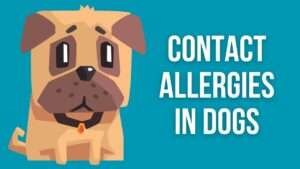


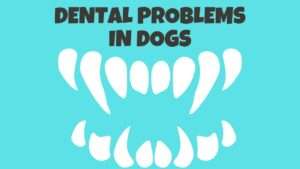

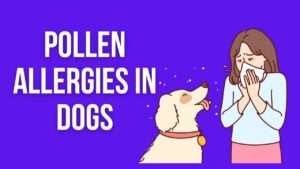
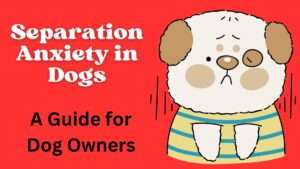
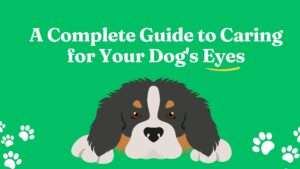
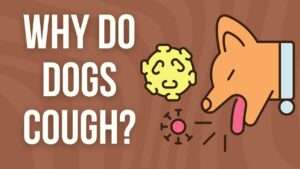
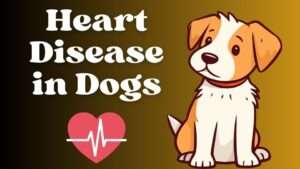
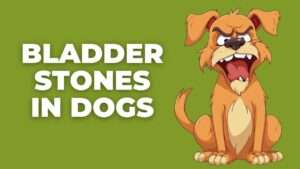


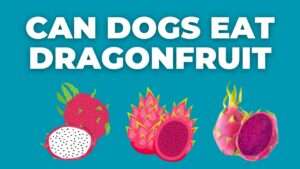




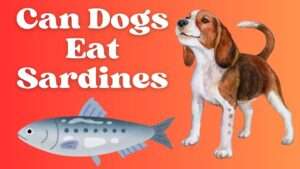
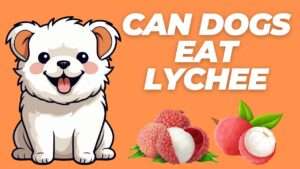

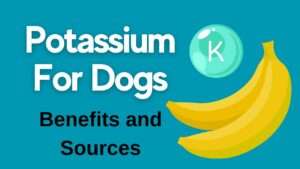
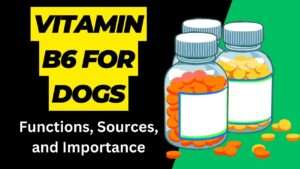
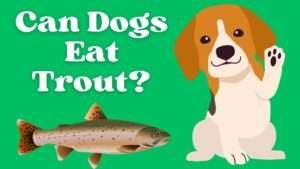

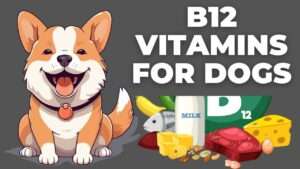








+ There are no comments
Add yours